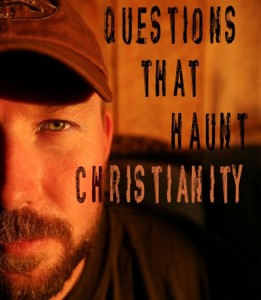Emergent theologian Tony Jones is starting a new blog series called Questions that Haunt Christianity. He’s inviting readers to submit their vexing questions about the Christian faith on Tuesday of each week, and then he’ll answer them on Friday.
Jones says, “I’m not afraid of doubt. I, myself, am a doubter. But I consider a large part of my vocation as a Christian  theologian to proffer intellectually honest answers to the big questions of faith.”
theologian to proffer intellectually honest answers to the big questions of faith.”
I think we need more of this kind of kind of thing in public Christian discourse: honest, serious engagement with tough questions. Theology blogs naturally attract these sorts of conversations–but it’s also nice to have theologians inviting them in a focused way.
Recently, on the Her*meneutics blog, guest writer Kara Powell sugggested that “doubt belongs in your youth group curriculum.” She noted an anecdote in Steve Jobs biography: at age 13, Jobs asked a tough, but classic, question about the problem of evil and suffering to his pastor (to paraphrase, if God has absolute divine foreknowledge, why does he allow global hunger and starvation?). The pastor shrugged off his question. Jobs left the church, never to return.
That narrative is multiplied countless times over, as the church struggles mightily with retention rates. (And now, thanks to Steve Jobs, every teenager has an IPhone or a Mac with which they surf the net to discover yet more difficult questions that “haunt” Christianity). The percentages of young people leaving the church, often due to the inability or unwillingness of church leaders to handle these complex questions, should be deeply troubling to those concerned with the future of Christian faith–and more importantly–with how these kids respond (or not) to Jesus.
I think what Jones is doing here is a new kind of apologetic approach, one that is not so much focused on winning arguments or somehow rationally “proving” the legitimacy of Christian faith or the existence of God, but simply engaging tough questions head-on, acknowledging the complexity, mystery and “unprovability” where necessary. I’ve written before about Richard Beck’s The Authenticity of Faith, where he argues that a new apologetic will be one that shows that Christian faith can be existentially authentic and compelling, without sealing off or squelching theological doubts.
Anyway, I think it would be kind of cool if Emergence Christianity, once branded by its critics as a grumbling, skeptical, disenfranchised movement with a penchant for relativism, could have an instrumental role to play in the revitalization of apologetic discourse–even if it’s a different brand than your father’s and mother’s.











